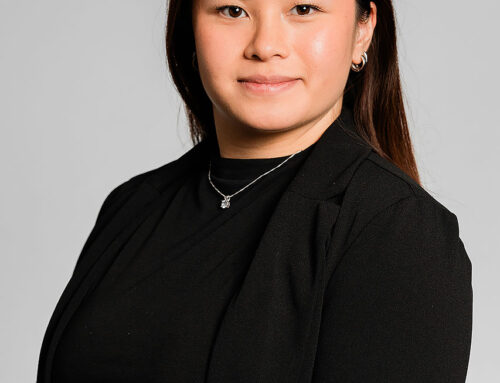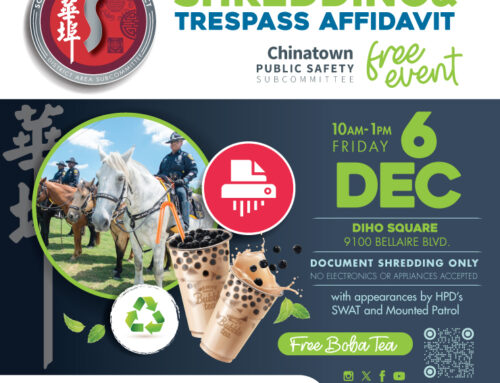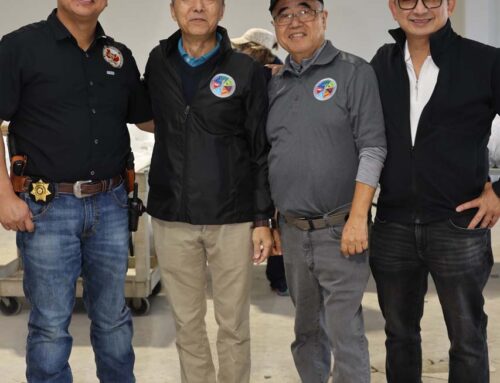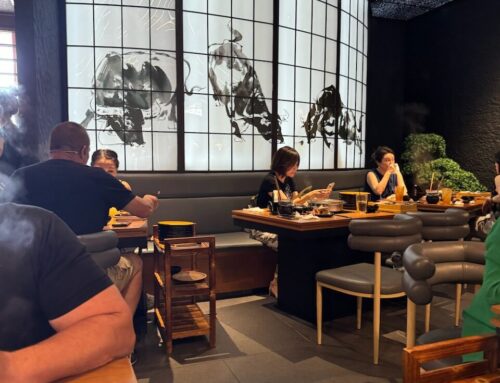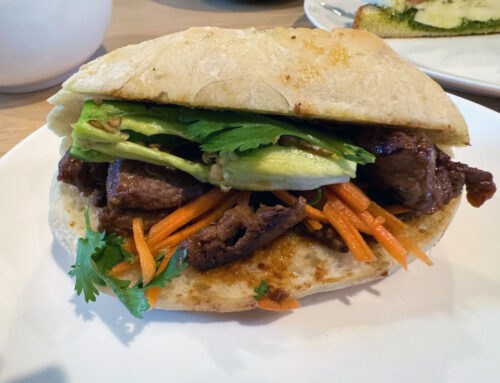As the Houston Police Department’s Asian new community liaison, Officer Loc Tram is no stranger to residents in the city and especially in the Southwest Management District. He is a compassionate and astute officer who understands the complexities of policing and community relations.
He succeeds Officer Don Vo, who was promoted to sergeant assigned to patrol duties.
Tram, a 12-year veteran of law enforcement, shared with the districts his thoughts about his job and his outlook on life.
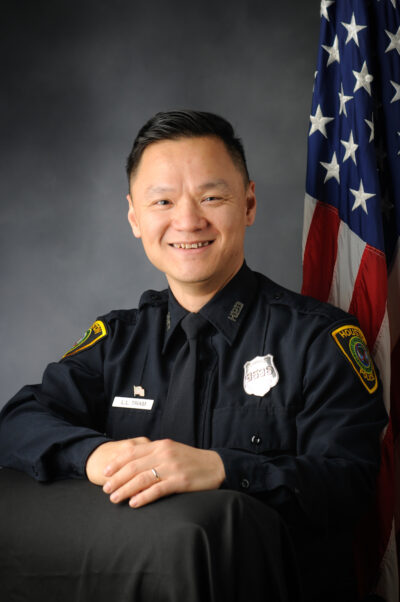 Q: Where are you from and where did you grow up?
Q: Where are you from and where did you grow up?
A: I would consider myself a child of two countries. I was born in Vietnam and immigrated to the U.S. when I was 8 years old. I grew up in New Jersey and moved to Texas in 2009.
Q: What is your age and title/position at HPD? What does the job entail?
A: I just turned 40 years old and have been a police officer with the Houston Police Department for 12 years. I work in the Office of Community Affairs and am the liaison for the Asian American and Pacific Islander (AAPI) community. While engaging with the community, I am able to provide and receive access from various civic and cultural institutions, which gives me the ability to foster a strong relationship between the police department and the communities in which we serve.
Q: What are your thoughts about the diversity of the Asian community in Houston?
A: I really appreciate that there are so many stories and various cultural contributions that are offered and shared throughout the greater Houston and Harris County area. The AAPI communities also have some common values that they now share with our new adopted culture. Being in this position offers me the opportunity to build relationships and work connections that show, no matter what culture we come from, we all share common traits:
- The desire to work and provide for our families
- The hope to be productive and impactful in our communities.
- The common human wish to raise and protect our children and give them an even better future and opportunities than that which we’ve inherited.
Q: Why did you decide to become a police officer?
A: When we arrived in the United States, there were various church groups, associations, and community organizations that assisted my family. My mother deeply respected public servants and I knew from a very young age that I wanted to be in a profession that serves the public. The traumatic event of 9/11 also showed me a side of public service that solidified my desire to serve and protect. When the towers were burning and everyone was pouring out of the building, the only people who rushed in were the men and women wearing the dark blue of the NYPD and the tan uniforms of the NYFD. When the world saw one of the worst acts of human terrorism, it also saw some of the best of humanity from the actions of those police officers and firemen.
Q: What is the most gratifying/rewarding part of your job?
A: To bring accountability to those who believe they can live lawlessly. I am thankful that the role I am in offers me the opportunity to teach, because through education and training, people are given the tools and knowledge that play an important role in their own safety.
Q: What are some of the biggest challenges that come with the job?
A: The frustration of not being able to help everyone because helping others is in our job description and is a way to feel connected to the people in our community. Another desire I hope to see is that the crime victims and their families would get the same platform and focus through the media and public support as many of the suspects often do.
Q: What are some of the stereotypes that many Asians face, and how to you deal with them?
A: Like any other culture, there are some stereotypes that falsely paint the entire demographic. Such as “all Asians speak the same language or share the same culture” or “all Asians are passive.” I try not to worry about the false narratives that others believe or have been exposed to, but rather I’m more focused on winning hearts and minds one person at a time.
Q: What are your thoughts on recent hate crime attacks against Asian-Americans? How many cases have you personally investigated?
A: I am always concerned whenever any person or persons in any specific community is attacked and encourage all crime victims to reach out to law enforcement, create a report and talk with their neighbors and friends in order to create awareness.
Q: What advice do you have for Asians to guard against unprovoked attacks, and to address racial stereotypes?
A: I suggest that anyone who is concerned with their safety should start developing the habit of being ‘self-aware’. Defensive training or weapons training are all great options, but keeping your mind fully focused on the moment can be difficult, especially in an age where there are so many demands for our attention. Sometimes you need to put away your phone and be aware of your surroundings to identify who is around you and what is happening. Remember, do not put yourself in any situation from which you feel you cannot remove yourself. When it comes to safety, it’s okay to trust your ‘gut’ feelings.
Q: Feel free to add comments that you would like to include in this interview.
A: Public service is a noble profession and can be very fulfilling. I encourage our community to partner with those in uniform in order to find solutions to problems that affect the community. I encourage young people who may feel like they want to be part of the solution to give the public safety field serious consideration. The main skill that is employed more than any other in public safety is problem solving by finding unique solutions to complicated problems. There are new challenges with each generation, and the department needs new minds and perspectives to come up with creative answers.



